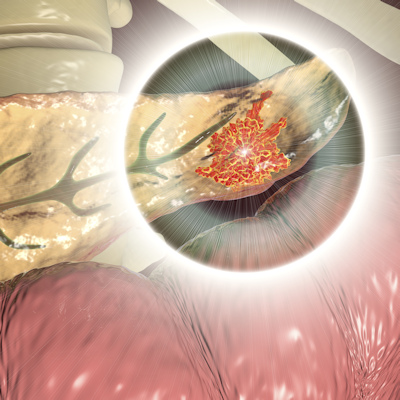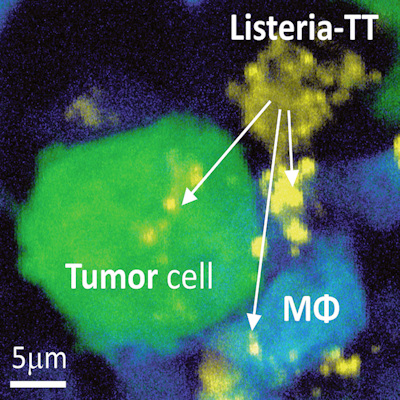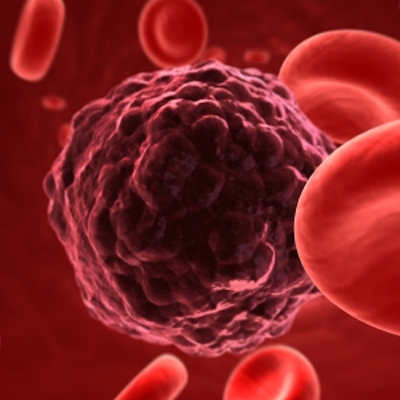October 24, 2022 -- Duke University researchers have developed a radioactive tumor implant which, in conjunction with chemotherapy, effectively treats pancreatic cancer in mice.
Their study, published October 19 in the journal Nature Biomedical Engineering, potentially offers new hope for pancreatic cancer patients.
Pancreatic cancer, despite accounting for only 3.2% of cancer cases, is the third leading cause of cancer deaths. Typically diagnosed after it has already spread, pancreatic cancer tumors often develop aggressive, drug resistant mutations. Current treatments combine chemotherapy and radiation. However, despite advances in targeting radiation beams, the necessary radiation threshold is difficult to reach without serious side effects.
Seeking to improve matters, researchers implanted radioactive iodine-131, encased in a gel made of elastin-like polypeptides (ELPs), directly into tumors. Iodine-131 emits beta radiation, which penetrates the biogel and dissolves tumors without harming the surrounding tissue. Eventually, iodine-131 decays into harmless xenon; the ELP then degrades into its constituent amino acids and is absorbed by the body.
The researchers tested the radioactive tumor implants along with paclitaxel, a common chemotherapy drug, hoping the treatments would work synergistically in mice with pancreatic cancer. Results showed a 100% response rate. Tumors were completely eliminated in 75% of the mice about 80% of the time, with no side effects beyond that caused by chemotherapy alone.
"We did a deep dive through over 1,100 treatments across preclinical models and never found results where the tumors shrank away and disappeared like ours did," said Jeff Schaal, who conducted the research during his PhD study in the laboratory of Ashutosh Chilkoti, PhD, the Alan L. Kaganov Distinguished Professor of Biomedical Engineering at Duke. "When the rest of the literature is saying that what we're seeing doesn't happen, that's when we knew we had something extremely interesting."
Still in preclinical stages, the approach unfortunately will not soon be available for human use. However, if large animal trials are successful, the researchers anticipate a phase I clinical trial in humans.
Copyright © 2022 scienceboard.net









